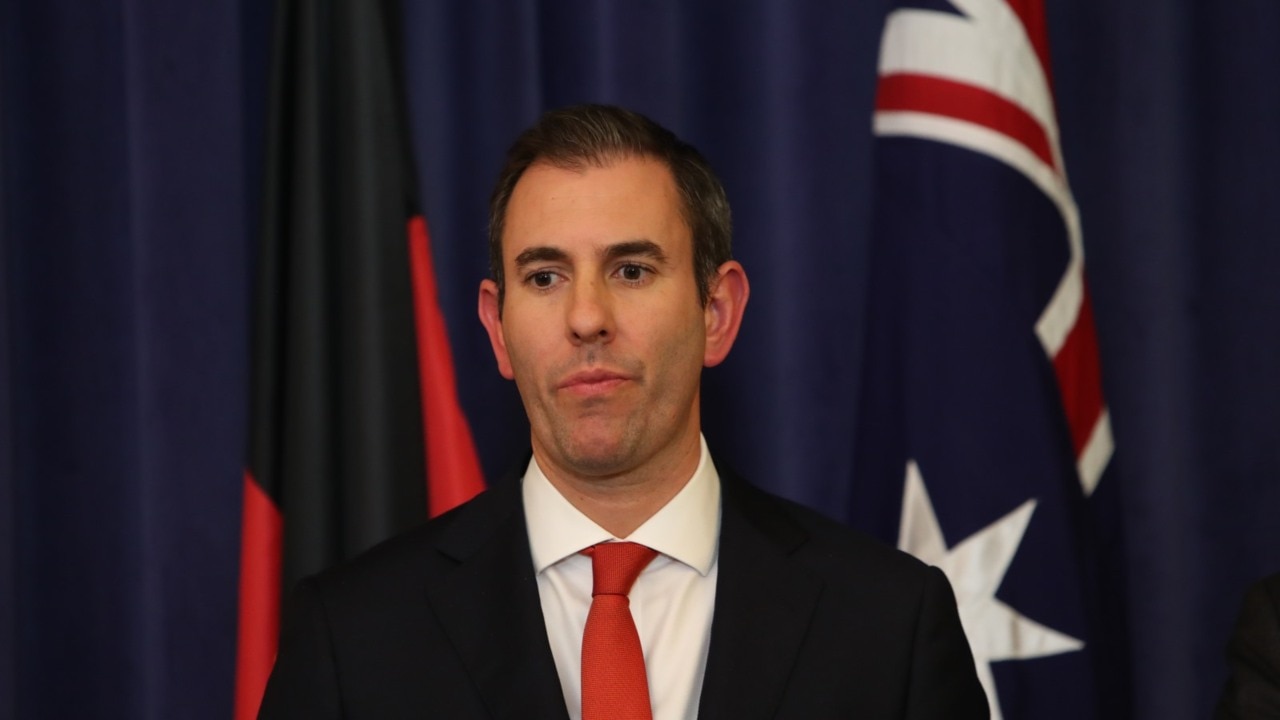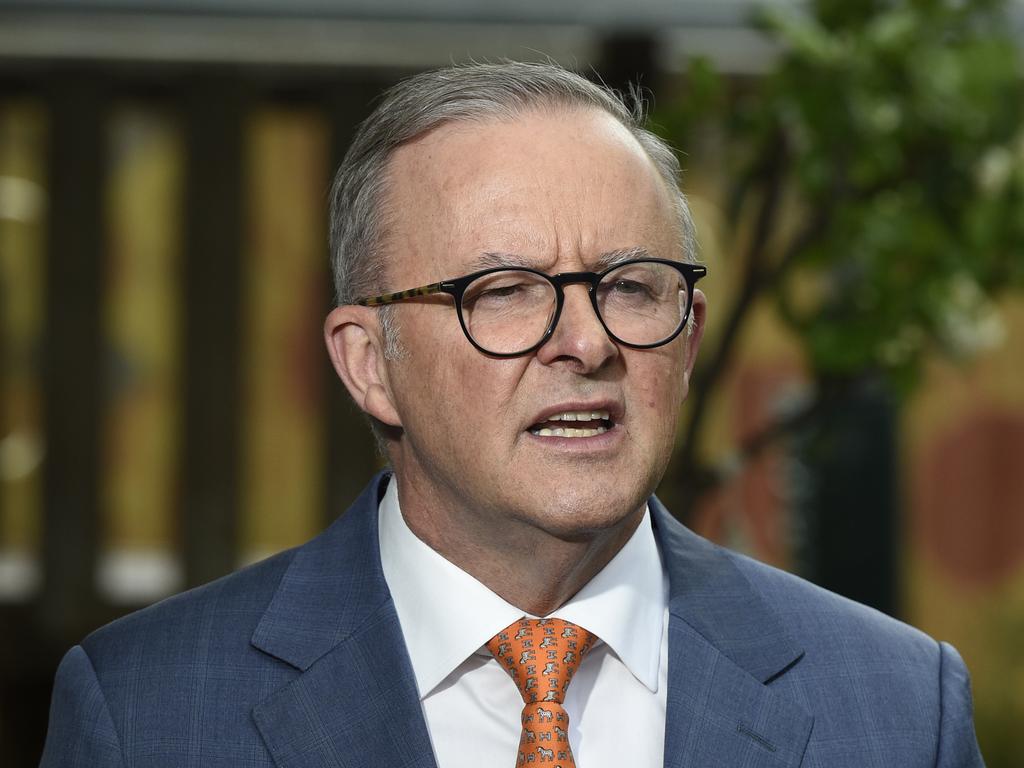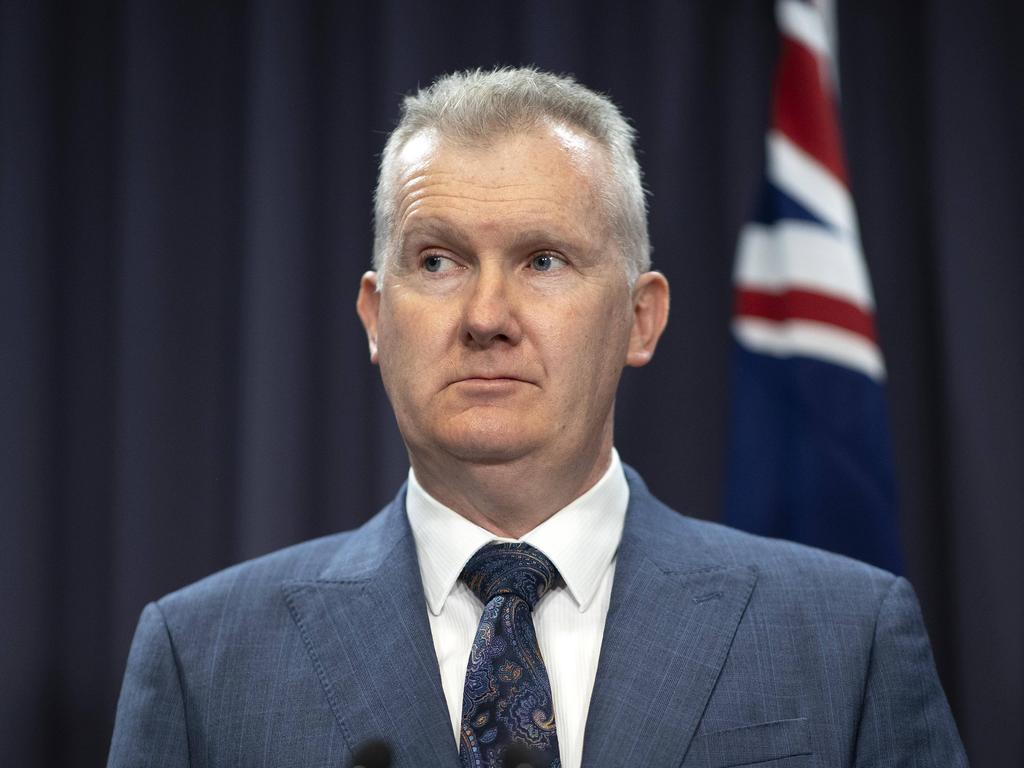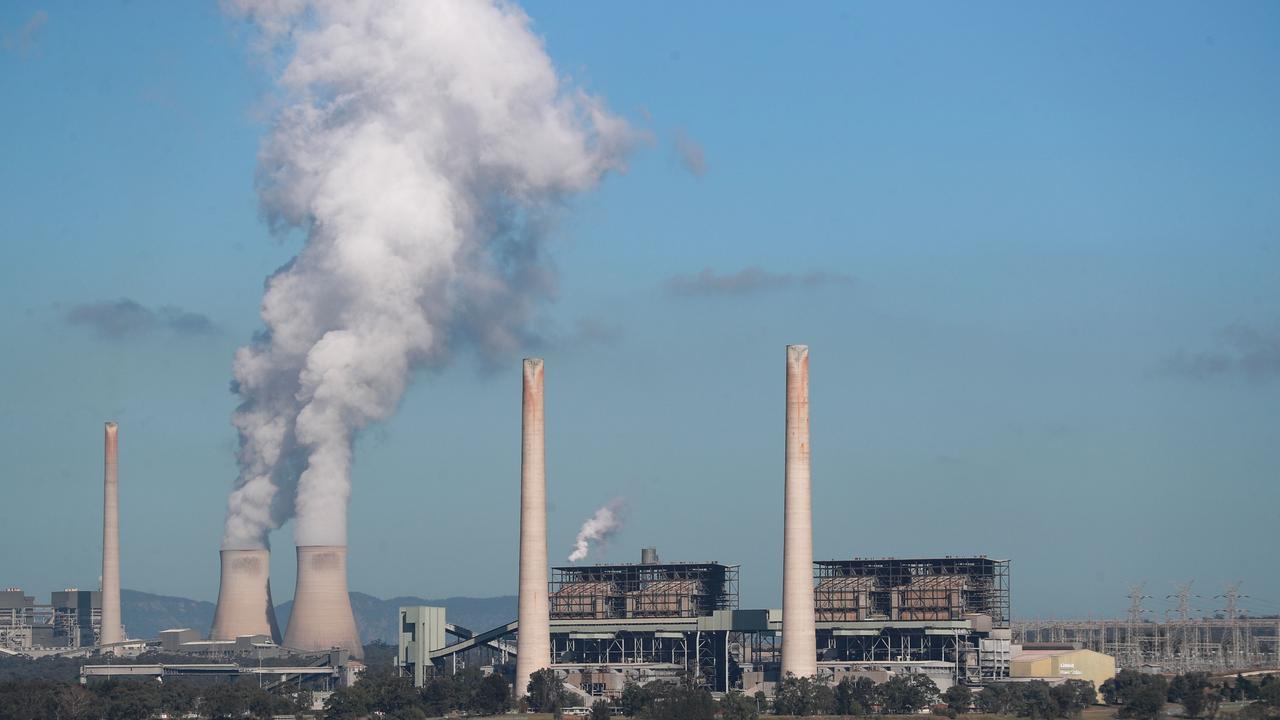Anthony Albanese rejects handouts to fix crisis
Anthony Albanese will lay down plans to ‘reform our way through’ the global downturn and reject cash handouts as ‘cheap politics and hugely expensive economics’.
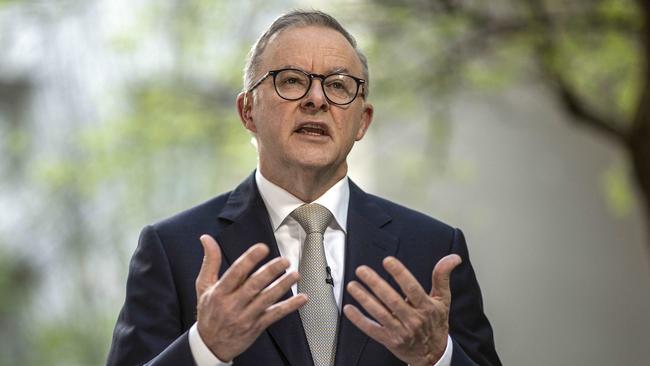
Anthony Albanese will lay down plans to “reform our way through” the impact on Australia of deteriorating global economic conditions and reject one-off cost-of-living cash handouts as “cheap politics and hugely expensive economics” that would have made the problem worse.
The Prime Minister and Jim Chalmers will on Wednesday launch a defence of the budget, with the Treasurer revealing that providing cash payments instead of banking more than $100bn in extra tax revenue would have added 0.5 percentage points to inflation.
The Reserve Bank lifted the cash rate to a nine-year high on Tuesday and revised the expected peak of inflation from 7.75 per cent to 8 per cent in December.
Speaking at The Australian-Melbourne Institute Outlook conference on Wednesday, Mr Albanese and Dr Chalmers will insist the government’s restraint on cost-of-living handouts and spending ensured the nation dodged higher inflation and steeper interest rates.
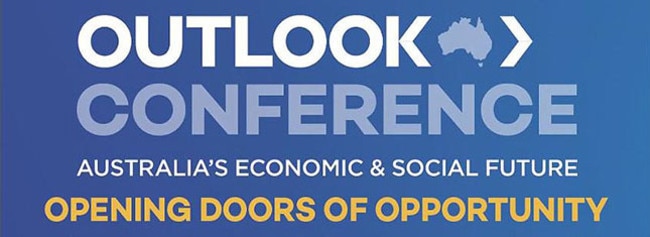
A Newspoll taken late last week found the government’s first budget was the most poorly received since 2014, with almost half of those surveyed believing they would be worse off over the next 12 months.
In a keynote address on Wednesday night, Mr Albanese will warn of “stormy waters” ahead as Europe and the US brace for recessions and Australia prepares for an economic slowdown, with the RBA predicting growth will slump to 1.5 per cent in 2023 and 2024.
As households and businesses struggle with soaring cost-of-living pressures, mortgage repayments and energy bills, the Prime Minister will commit to serious “budget repair” action and fixing the “broken bargaining system” to help lift stagnant wages.
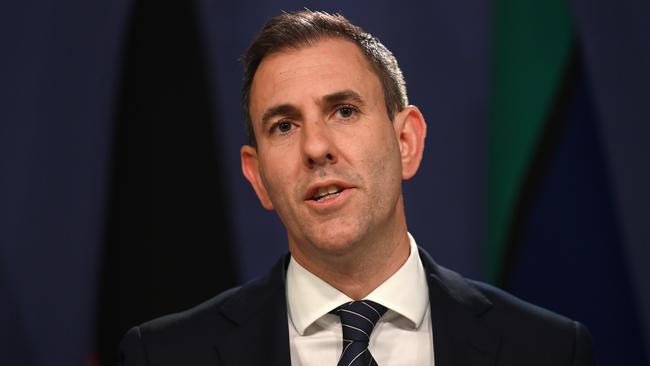
“Rising inflation is biting here and overseas – and central banks are responding with the sharpest and most synchronised tightening of monetary policy for decades,” Mr Albanese will say.
“And while the long tail of Covid continues to impact supply chains and construction costs, the new economic downturn we are facing is very different to the recession brought on by the pandemic. We can’t close our borders and wait it out, we have to reform our way through.
“Our budget was framed in recognition of this global uncertainty – as well as the intensifying fiscal challenges here at home.”
While acknowledging Australians were “feeling the pain of rising prices” and a severe drop in real wages, Mr Albanese will hit back at suggestions the budget should have provided cash handouts in response to cost-of-living pressures.
“The easy option would have been for us to funnel these savings straight into a cash-splash, a one-off giveaway to buy a headline. Cheap politics and hugely expensive economics,” he will say.
“Not just because of the dollar cost. Not just because that’s exactly the sort of short-term approach that got Australia into this situation. But because the untargeted spending would make the problem worse.
“Instead of helping households, it would only add to the inflationary pressures that are eating away at family budgets and devaluing wages. Fiscal policy needs to work with monetary policy, not contradict it.”
Dr Chalmers will say that banking 99 per cent of higher revenue over the next two years and restricting real spending growth to an average of 0.3 per cent over four years, almost 10 times lower than the Coalition’s pre-pandemic average, were the sensible responses to inflationary pressures.
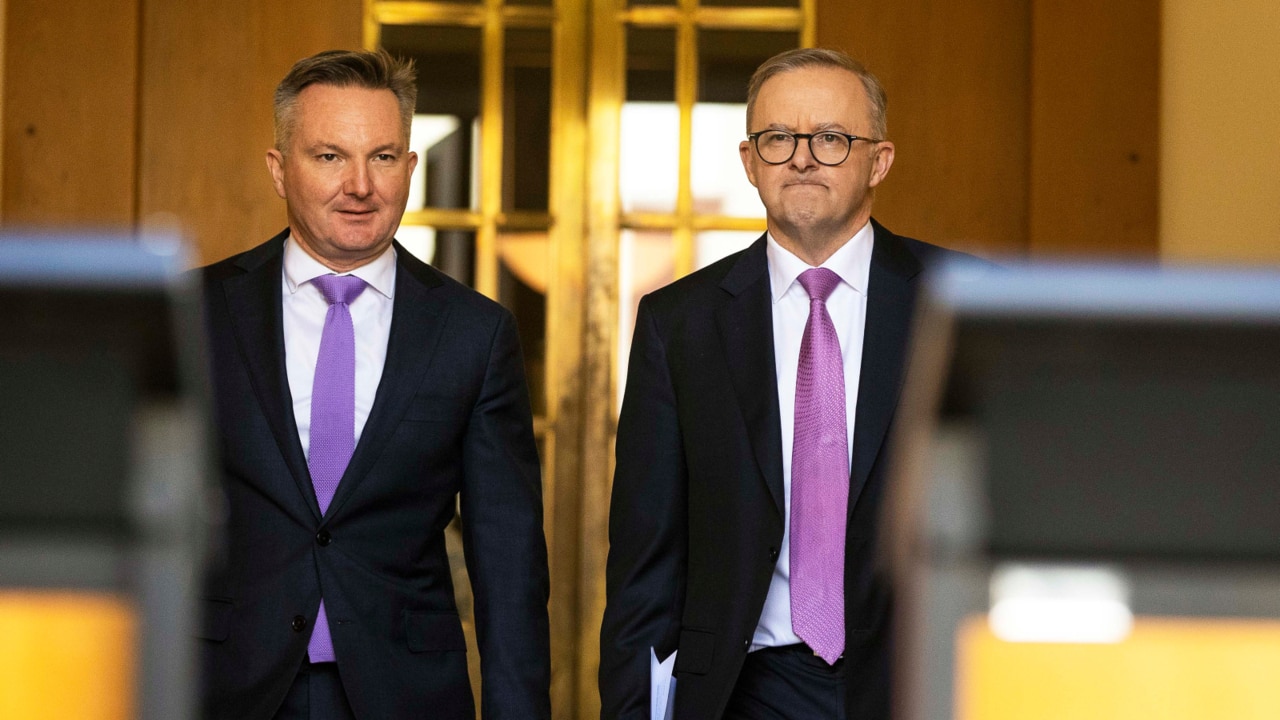
“It would have been easier – and no doubt more popular – to splash borrowed cash on an expansionary cost of living response,” Dr Chalmers will say.
“But in the long run, that would have delivered a deeply damaging outcome for Australians and for their economy.
So we made the responsible decisions, not the easy ones. Doing what is right and necessary for the challenges we confront.”
After the Reserve Bank on Tuesday announced its seventh consecutive rate hike, lifting the cash rate to a nine-year high of 2.85 per cent, and upgraded its inflation forecast to 8 per cent by December, Dr Chalmers will say the budget was “defined by the times and designed for the times … influenced primarily by inflation, and fundamentally a response to it”. “Any responsible budget had to focus on this, first and foremost – because of what persistent, pervasive, unchecked inflation can mean,” Dr Chalmers will say.
The Treasurer will say that if the government had not reined in spending and found $22bn in savings, “it would have compounded inflation, compelled the RBA to go harder and sent the cost of living even higher”. “Treasury analysis shows that’s exactly what would have happened if we had spent the tax receipt windfall in payments to households, instead of returning it to the budget,” he will say.
“Their work indicates that inflation would have increased by up to an additional 0.5 percentage points over the next year, if we had gone down that path.”

With structural spending pressures projected across the National Disability Insurance Scheme, national security, health and aged care budgets, Mr Albanese will say that “at budget time, we can all occasionally fall into the trap of talking about these four things simply as a set of figures”.
“But that’s not right. National security, Medicare, aged care, the NDIS: these programs are essential to the safety of our people, fundamental to the health and strength and fairness of our society. Of course we always want to see value for every dollar. And we must ensure these programs are sustainable, for the long term. But we also have a clear understanding of the value of these investments, as well as their cost.”
Mr Albanese will warn that rising interest rates will put pressure on debt repayments, with the nation’s gross debt bill set to peak at $1.16 trillion or 43.1 per cent of GDP in mid-2026.
“Our government has inherited the highest level of debt as a share of GDP in over 70 years,” he will say. “And we face higher borrowing costs to service this debt.
“At $12bn, the increase in the interest bill over the next four years is not just the largest payment variation in the budget, it is also the fastest growing cost. And this interest bill is forecast to rise at more than 14 per cent a year over the next decade.
“We are serious about the work of budget repair, because we know how important it is to build a fiscal buffer against international uncertainty. To plan and prepare for the unknown, for the global shocks that expose a domestic weakness.”
More Coverage
